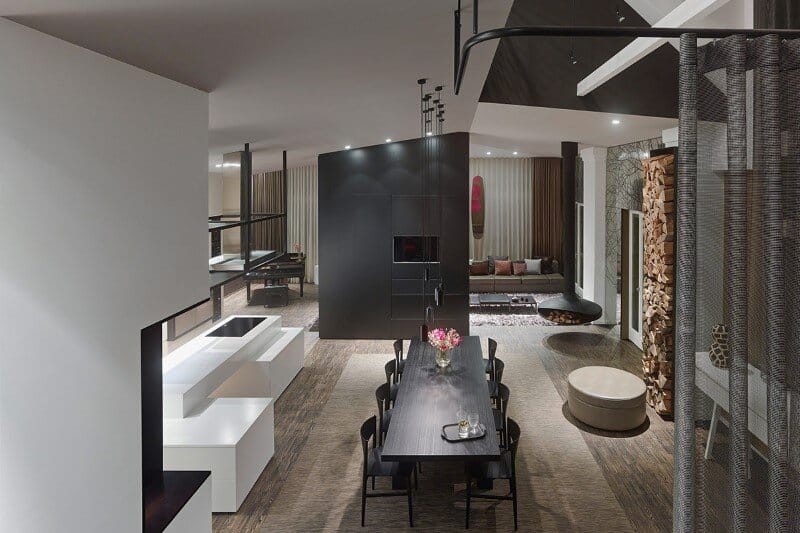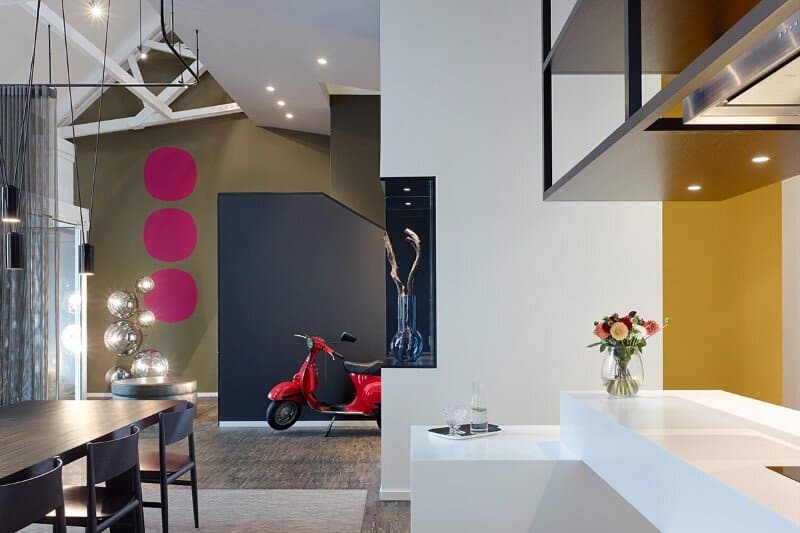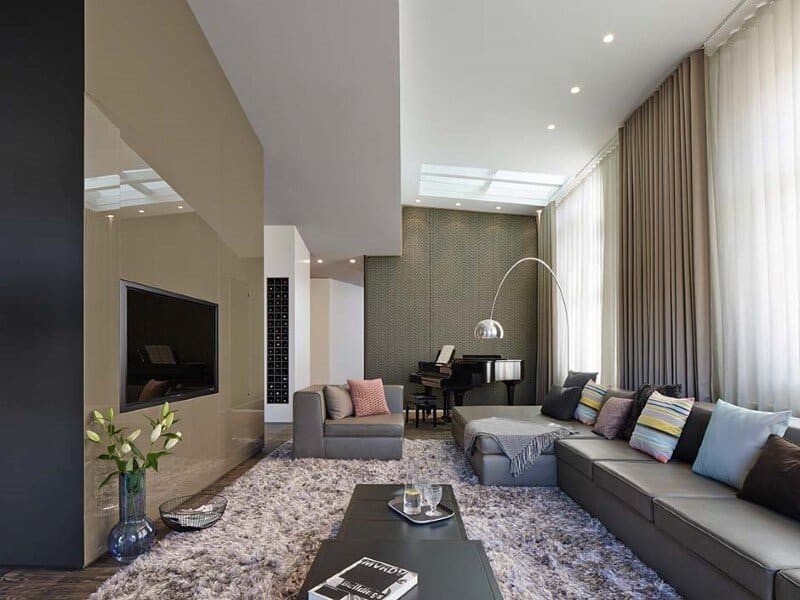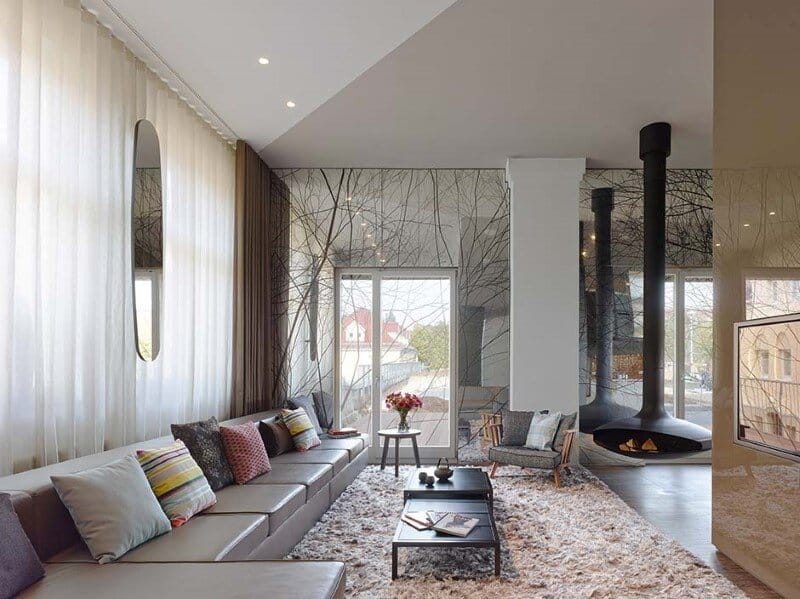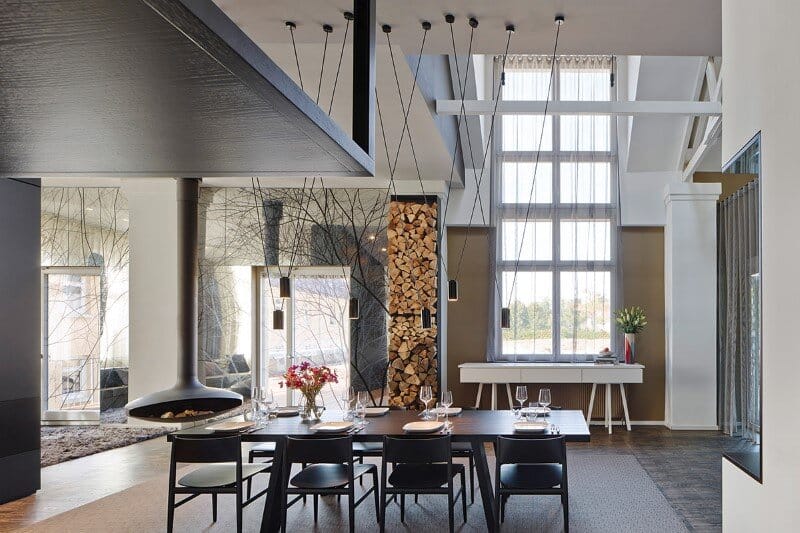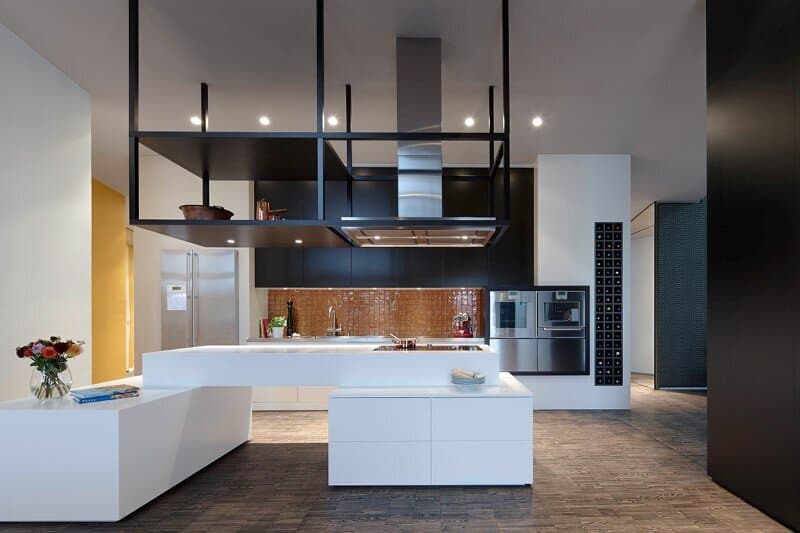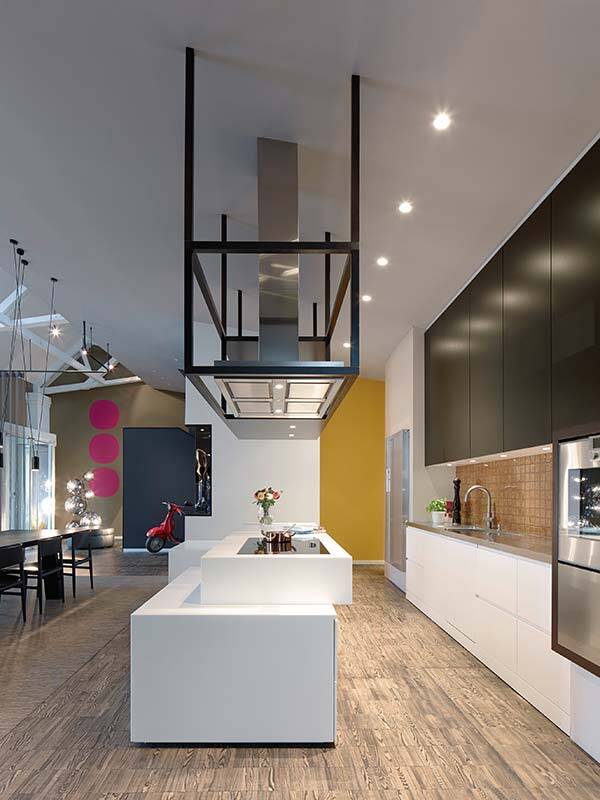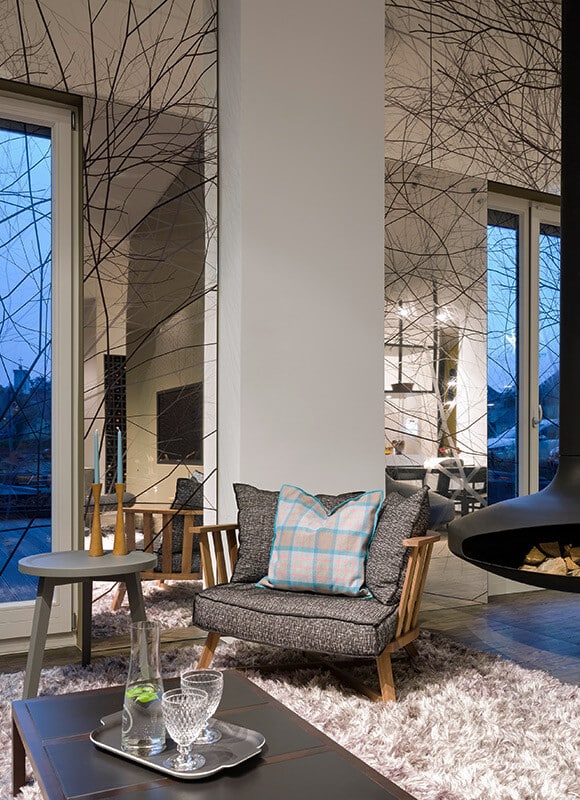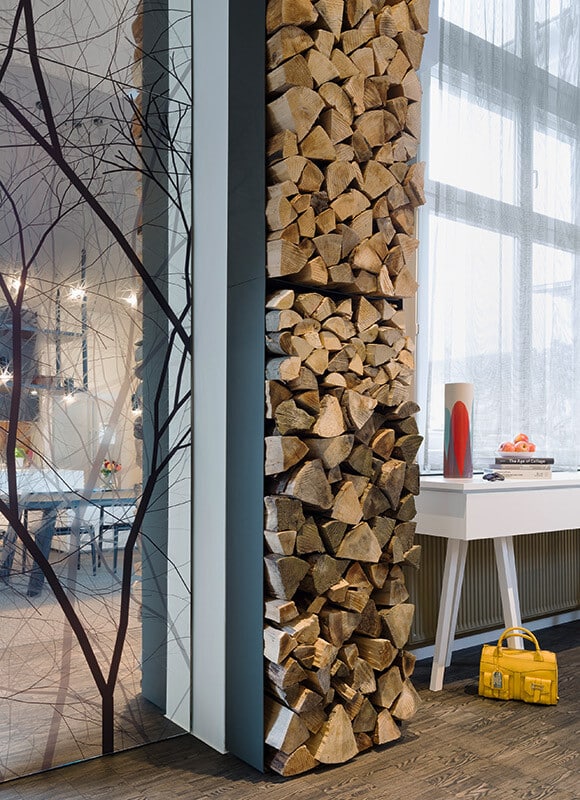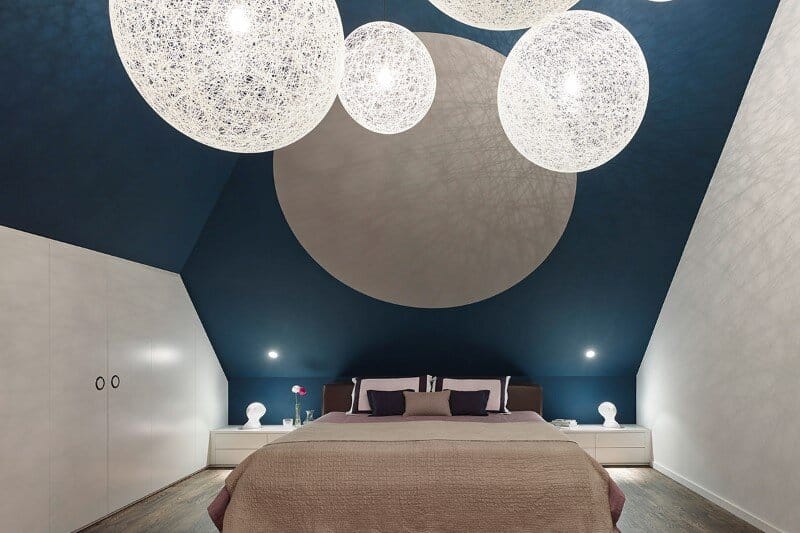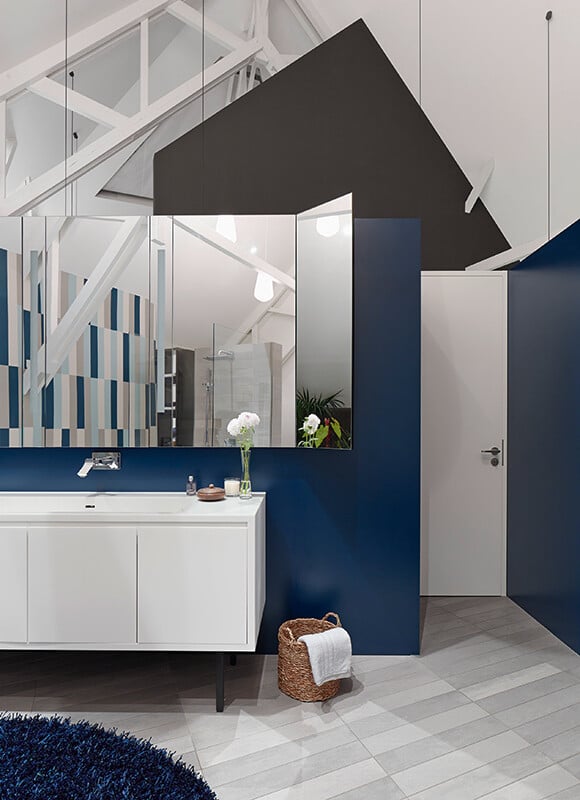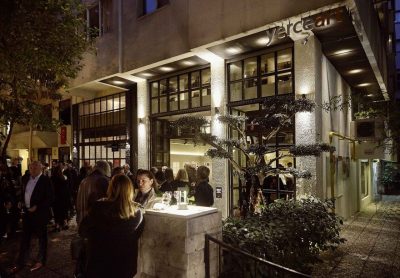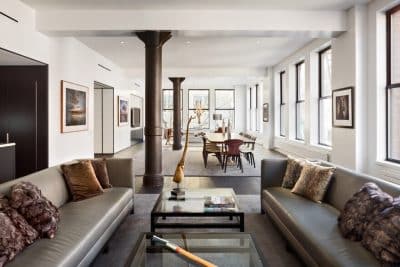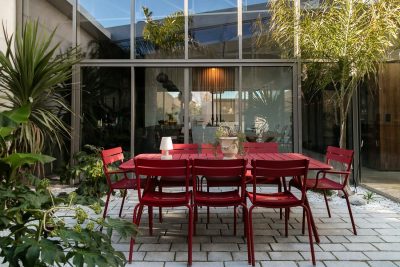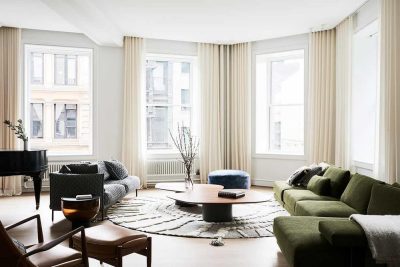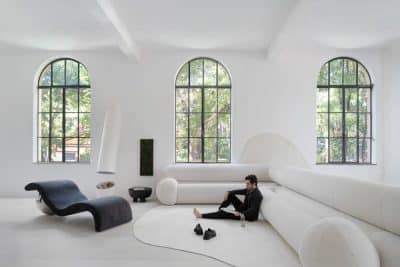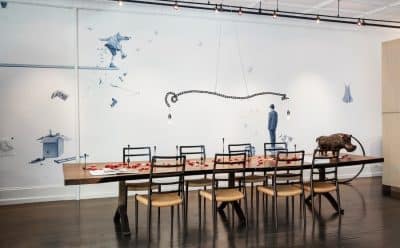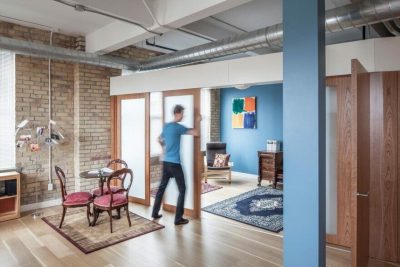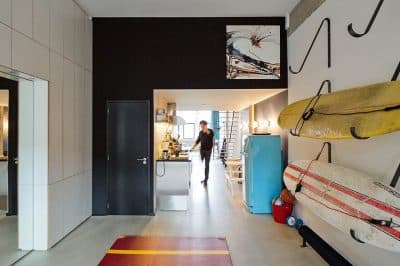Project: Residential Loft
Architects: Ippolito Fleitz Group – Identity Architects
Location: Esslingen am Neckar, Germany
Area: 400.0 sqm
Project Year: 2014
Photographs: Zooey Braun
Ippolito Fleitz Group – Identity Architects have transformed two drab office floors into a residential loft. The home is located in Esslingen am Neckar, a city in the Stuttgart Region of Baden-Württemberg in southern Germany.
The Palmscher Park in Esslingen is a former army barracks from the late Wilhelmine era. It was transformed into a residential complex at the turn of the millennium and has become a very popular residential area thanks to its attractive hillside situation, only ten minutes walking distance from Esslingen town centre. When an agency moved out of a loft space at the short end of a two-storey block, a family with two small children sought to transform the site into their new home. An open and spacious living space with differentiated living zones and tantalising visual perspectives was created across 400 square metres.
Now when a visitor enters the loft, a wide space opens up along a horizontal and vertical axis. The living area is only separated from the entrance area by an L-shaped filtering curtain. At the foot of the staircase a wardrobe is concealed behind a mirrored wall, reflecting Tom Dixon’s Mirror Ball infinitely back and forth.
The ground floor is laid out around the dining area. A long table is located in space by a carpet and slender, intersecting, pendant lamps. An open-plan kitchen connects well with the dining space thanks to three, freely stacked, solid surface cubes. A rear row of kitchen units houses different household appliances and a tall, narrow wine rack, creating an enticing mix of stainless steel, lacquered wood and solid surface. The tiled splash-back of golden, Italian glass tiles recalls the owners’ origins and childhood. The row of kitchen units also screens the children’s living space. Its rear wall containing integrated cupboards forms the corridor leading to the three children’s bedrooms.
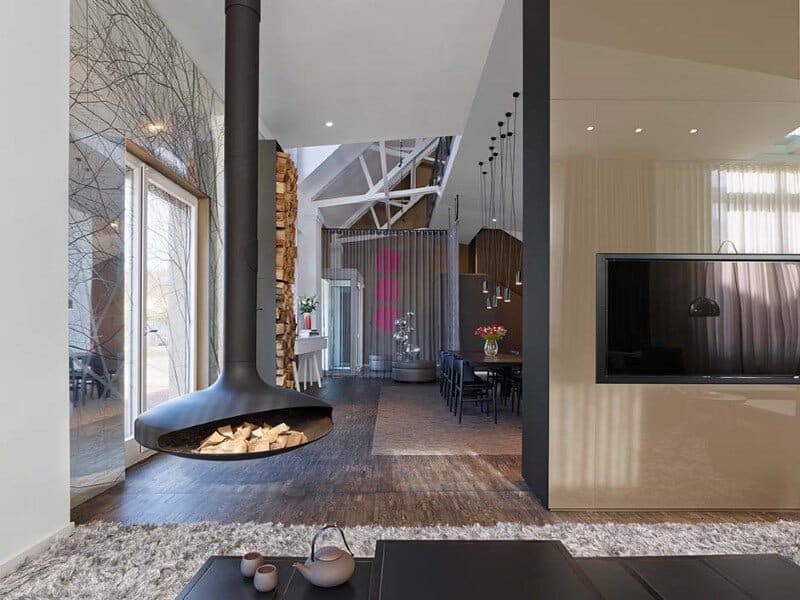
The precise, smooth glass surface and the randomly piled wood create an exciting contrast, which is reflected throughout the space. Warm natural materials and colours – including a dark-stained oak parquet floor, earthy tones on the walls and curtains, but also the shimmering golden surfaces – find a corresponding analogy in pink expanses of colour, cuboid solid surface forms and glass surfaces. The room receives an additional dynamic twist thanks to its sloping ceilings; their individual surfaces are accentuated by a contrasting colour scheme.
